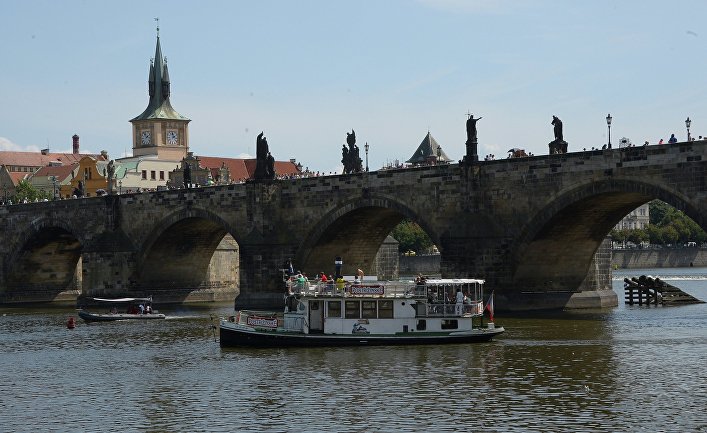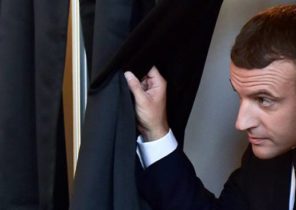
Czech Republic as a place of higher education in Europe is becoming more and more popular among international students, and Prague has become a real international student capital. Education in universities is in Czech and English, and in some cases, and Russian languages. In only one Technical University has more than 1,350 people from the former Soviet Union. Many are attracted by the opportunity of free training in the Czech language at public universities, like life in one of the most visited cities in Europe. His contribution to the attraction of the universities of young people from all over the world make the open Days held at universities of the Czech capital and abroad.
The brainchild of Emperor Joseph I
Few schools in the world can boast such a pedigree as the Czech technical University in Prague (CTU), founded back in 1707 by Austrian Emperor Joseph I. the Oldest technical University in Central Europe and the oldest civil technical University in the world is one of the members of the Czech consortium of five state universities, signed an agreement on the draft joint presentations in the Czech Republic and abroad. In the framework of the project Prague appears as a city that offers the widest range of educational programs. We’ll talk with the Vice-rector for international relations HONOR Miroslav vlček, not only about the participation of representatives of the academic community in specialized exhibitions of foreign education.
Free training in the Czech language
— In the Arsenal of Prague — a large range of University programs on a variety of topics ranging from nuclear physics, chemical technology, psychology to theology. We participate in international education fairs, visited Kazakhstan, South America, Malaysia, China, Turkey, Indonesia, and also in the Baltic States. Of course, we seek to inform potential students and in such States as Russia, Ukraine and other countries. Initially, our project was aimed at informing young people, who could themselves pay for their education, but in General we can say that very often students come to study on the basis of existing bilateral agreements with foreign universities. This frees them from having to pay tuition. Naturally, we welcome students from such third countries as referred to Malaysia, China, Indonesia or Vietnam who bring funds into the state budget, but in General for us a very important presence in our universities all foreign students. Including those who study free of charge on the basis of bilateral agreements or simply because is able to learn the Czech language.
Quickly able to master the Czech language for Russians, Ukrainians, Belarusians and other immigrants from the former Soviet Union. Do you know how many of them are currently studying in the walls of the Czech technical University (CTU), as well as in other universities of Prague — it would be interesting to hear at least ballpark figures?
— I have mostly data on the number of students of the Prague technical University. From less than 4 thousand foreign students approximately ¾ of our students come from dozens of countries around the world. The first two places by the number of students is Russia and Ukraine.
Half of the 4 thousand foreigners studying in the Czech
— The Russians — one of the most numerous groups among the students HONORED According to the provided relevant information, at present, at the Technical University of Prague, study of 752 Russian, Ukrainian 273, 222 student from Kazakhstan, 76 from Belarus, 18 from Azerbaijan and 12 from Kyrgyzstan, which is an impressive figure -1353 students, approximately one third of all foreigners. Is it possible to speak about certain stable preferences for educational programs group students? And how many of your vazovtsev, according to available data, study programme in Czech language?
— It is possible to say with certainty that this group is interested in medicine and technical areas. To highlight the dominant direction in the data preferences, I do not presume, however, students from Russia, Ukraine and Belarus are clearly attracted to other scientific disciplines than, for example, students from South America. We get this question at the University is not yet explored. I can say that 4 million of our foreign students, only about half are enrolled in English, others in Czech.
— Are there at the Technical University of Prague also has educational programs in Russian language?
— Yes, in Russian (and in Czech and English, approx. ed.) is studying at the faculty of biomedical engineering, the program “Biomedical and clinical technology” there is already 4 or 5 years. It refers directly to the sphere of production of medical equipment for the diagnosis of diseases, maintenance of medical equipment and other technical aspects.
Alina Karpenko came to the Czech Republic from Kazakhstan and pay a visit to one of the open Days, which took place in the Prague Karolinum, to find out more about what subjects are studied on their chosen faculties, as well as to listen to presentations of individual teachers. Alina, who is currently preparing for final exams for the matriculation certificate in the Czech gymnasium in tábor, interested in mathematics, so she consulted with teachers regarding the selection of suitable faculty for the acquisition of specialty in the field of mathematical disciplines.
In the Karolinum Alina visited with her friend Sophia Markova, who came to Czech Republic from Tula — and she is studying at the Czech school in Tabor. In this school, told me smiling companion, he is currently six Russian-speaking students. Acquaintances with Russian girls communicate also coming to Prague, where they also engaged in the Czech language.
“I came in Karolinum to find out more about the universities. Basically, I already know what and how, but I was interested to communicate with people and get additional information. I had applied for the office of media and marketing at the Charles University and the Prague University of Economics,” says Sofia.
— How to relate to Russian-speaking students the students of their school?
— We communicate with everyone and, in principle, foreigners are good enough. In our school we love, soon we will approach classmates, we meet with them. Everything is fine, the main thing — to learn.







